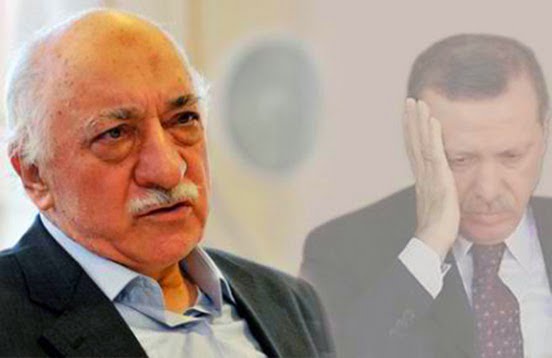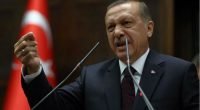Debunking The Gülen-Erdoğan Relationship

Date posted: September 22, 2016
Hakan Yesilova
Ever since the deplorable, bloody coup attempt on July 15, Turkey analysts and armchair geostrategists have described Fethullah Gülen, the Muslim scholar residing in Pennsylvania since 1999, and Turkish President Recep Tayyip Erdoğan as former-allies-turned-foes.
Yes, at one time, there had been rapprochement and mutual support, but reality and history show that such an alliance has long been overstated. The truth is, Erdoğan and Gülen only came together when Erdoğan’s stated goals reflected deeply held beliefs by Gülen.
Well before Erdoğan and his AK Party (AKP) came to power in 2002, the forerunner of “political Islam” was the Milli Görüş movement, led by Necmettin Erbakan since the early 1970s. A byproduct of the oppressive, ultra-secularist regime at the time, Milli Görüş aspired for a top-down political transformation from the irreligious, Western-bound republic to an independent regime based on religious principles aimed at reviving Ottoman glory. Turkey’s secular establishment, represented by the governing elite and the army, saw this as a threat and closed Erbakan’s parties and banned him from politics.
But Erbakan didn’t represent all devout Turks. A majority of practicing Turks favored center-right conservative parties more oriented to Western democracies than the Middle East. Still, Erbakan was able to snatch the office in the 1970s as deputy prime minister and then finally as the Prime Minister in 1996 for one year.
A financial crisis in 2001 paved the way for Erdoğan’s AKP to win a sweeping majority in the National Assembly in 2002. In addition to the conditions being ripe for change, Erdoğan moderated his public position away from previous political Islamist stances, saying he took off Milli Görüş’s shirt, and that accession to the European Union would be a top priority. This attracted not only the larger conservative masses, but also liberals, business owners, celebrities and faith-based communities like the Hizmet movement inspired by Gülen.
For most of the decade, the AKP voiced what a recovering nation wanted to hear: EU accession, economic reforms, extended freedoms, a new constitution and leaving behind political Islamist rhetoric. These were—and still are—ideas in which Gülen strongly believes.
Recent months and years make it difficult to remember, but Gülen was not the only prominent person to side with the AKP when it claimed to be democratic and Western-leaning. In 2009, US President Barack Obama came to Turkey on his first international visit to a Muslim nation, where he highlighted Turkey’s role in the Middle East. In 2004, the American Jewish Congress presented their Profile of Courage Award to Erdoğan for his “stances on fighting terrorism, working to secure a peaceful solution for Israelis and Palestinians, rejecting fundamentalism and being steadfast in [his] commitment to protect the Jewish citizens of Turkey.”
Despite having shared goals at the time, Gülen and the Hizmet movement were never in any formal alliance with political Islamists. Erdoğan’s political Islamists, then and now, demanded their partisans pledge absolute allegiance and declared as infidels those who did not. Gülen, on the other hand, never confined himself to one party; doing so would have contradicted Hizmet’s independent civil nature.
Gülen has always been careful with politicians – rarely engaging with them and even more rarely speaking publicly in favor of them. It is telling that for all of the talk of the supposed Erdoğan-Gülen alliance, the two men met three times, and not once since Erdoğan became prime minister more than 15 years ago.
Perhaps Gülen’s best political friend was the late Prime Minister Bülent Ecevit, who was both leftist and a secularist. Gülen has sermonized the late Ecevit many times as a man of dignity, courage and a poet. Yet the Hizmet movement didn’t necessarily vote en masse for Ecevit’s party. With the exception of a 2010 referendum on judicial reforms, which was beyond party politics, Gülen never pointed his followers in a certain political direction.
The current crisis is yet another tragic struggle of survival for Gülen, who has been the target of the Kemalist establishment – named for Mustafa Kemal Atatürk, the founder and first president of modern Turkey – for years. Gülen was detained and arrested during the 1960 and 1971 coups, and was on the run for six years after the 1980 coup. He was made an enemy of the state during the “post-modern” coup in 1997, which ultimately led to his taking up residence in the United States.
Today, Erdoğan, who has been struggling against charges of corruption, engaging in oil trade with ISIS, interfering in the Syrian conflict and violating international sanctions against Iran, has taken up the anti-Gülen cause.
For Erdoğan and his supporters, Gülen is perceived as a threat because of his activist preaching — that his followers should pursue their personal dreams for positions higher than those imposed by the strictures of Turkish society and culture.
As is often the case, perception is mistaken for reality. Gülen is not Erdoğan’s biggest threat, nor was he his chief ally.
Hakan Yesilova is editor-in-chief of The Fountain magazine.
Related videos:
Was there a sincere alliance between the Gulen Movement and Erdogan?
Fethullah Gülen: No return from democracy (Remarks in 1994 & 2016)
Source: The Daily Caller , September 22, 2016
Tags: Fethullah Gulen | Hizmet and politics | Turkey |
























